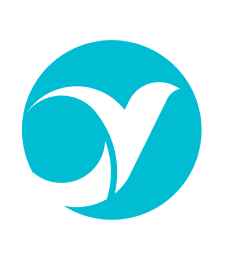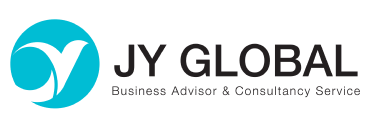

Overview
In Switzerland cryptocurrencies and exchanges are legal, and the country has adopted a remarkably progressive stance towards cryptocurrency regulations.
Incorporation: around 3 months + delivery time for the courier
Minimum paid up capital: 100,000 CHF
Overview
Clearly, Switzerland is not the cheapest of jurisdictions in which to establish a new business, but it does have many substantial advantages which make it more attractive than other countries for family-owned companies and cross-border entrepreneurs, large and small.
Incorporating a Swiss company can offer many valuable benefits to its owners, including the following unbeatable fundamentals:
- ▪Low tax rates – Tax liability and assessments are based on a clear inter-cantonal tax system and the use of tax rulings for special categories;
- ▪Friendly business environment – In addition to this relatively tax-friendly environment, the benefits of owning a business in Switzerland, however modest by comparison to the country’s corporate giants, are not to be sneezed at, thanks to a uniquely stable macro economic and legal infrastructure which offer exceptionally high levels of both corporate and individual security;
- ▪Tax reduction – If the holding company owns 20% of the share capital of another legal entity, it can also benefit from the reduction of the corporate tax rate at the federal level;
- ▪Exemptions from the dividends – The double tax treaties signed by Switzerland with the European Union and several other jurisdictions, can provide tax exemptions for the dividends received by subsidiaries of the Swiss holding companies. Dividends received by the subsidiaries of the holding companies give them the right to receive a federal tax reduction by a portion of the dividend income to the total net income;
- ▪Cantonal taxes – Tax rates vary considerably depending on the Swiss canton where the holding company is established. Resident companies must pay tax on the income received worldwide. This tax rate can vary between 4% and 25%, depending on the tax rates set by each canton.
Overt he past few years, Switzerland, and in particular the canton of Zug, has become the world center of business in the field of cryptocurrency. The Canton of Zug is sometimes called the crypto capital of the world and many Bitcoin service startups are located there, including Xapo, Shapeshift, Ethereum, Monetas, and Bitcoin Suisse. This situation is the result of several factors: first of all, this is due to the fact that, unlike most countries of the world that are trying to oppose cryptobusiness in every possible way, Switzerland supports this direction in every way simplifying the life of entrepreneurs. The second important aspect is very attractive compared to other countries taxation, operating in the territory of the confederation, and the third aspect is the stability of the country itself, which allows the entrepreneur to live without risk, without fear that his business will be regarded as illegal tomorrow.
Most of the activities related to cryptobusiness are regulated by the Federal Financial Markets Supervisory Authority (FINMA) through regular publication of guidelines in one or another area of cryptobusiness.
Thus, based on the recommendations of FINMA, almost all activities in the field of cryptobusiness fall under one of the following licenses (depending on the business model, one activity may fall under several licenses at the same time):
- ▪Financial intermediary license (the most common);
- ▪Banking license;
- ▪Investment fund license;
- ▪Dealer in securities license.
As for the ICO itself, FINMA regulates this activity, dividing produced tokens into three categories:
- ▪payment tokens: a synonym for cryptocurrency (as a rule, fall under the license of a financial intermediary);
- ▪utility tokens: a token designed, for example, to provide digital access to an application or service (as a rule, is not subject to licensing, but in some cases may be equated with securities);
- ▪asset tokens: a token whose function is similar to stocks and bonds (as a rule, they fall under the license for trading activity in the field of securities).
Financial intermediary license
Under the Anti-Money Laundering Act (AMLA), financial intermediaries who are not members of a self-regulatory organization require a license from FINMA. Before a license can be issued to a directly subordinated financial intermediary (DSFI), it must meet the license conditions set out in the Act (Art. 14 AMLA).
A financial intermediary must:
- ▪be entered in the Commercial Register as a commercial undertaking or be officially authorized to conduct business;
- ▪be able to ensure compliance with AMLA requirements by having an appropriate organizational structure and internal regulations; and
- ▪enjoy a good reputation and be able to provide assurance both of compliance with its duties under AMLA and of proper business conduct. These conditions apply both to the organization itself and to the individuals responsible for its administration and management.
Applications must demonstrate that future license holders will meet all the licensing requirements specified in the Act or will do so immediately after authorization has been granted.
Applications must be submitted in an official language of the Swiss Confederation and signed by the applicant. Applications filed by the applicant’s legal representative must be signed by this person; a certified copy of this person’s power of attorney must also be enclosed.
FINMA will process the application once it has been submitted correctly and in full. If necessary, the applicant may be asked to submit further information or documents in order to establish full compliance with licensing requirements.
Comprehensive Guide to Company Incorporation
General information
Company structure
- ▪At least one shareholder (no nationality restriction or residency restrictions)
- ▪At least one director (cannot be legal persons and need not to be shareholders of the corporation)
Confidentiality
- ▪Beneficial owners’ details – Not part of public record
- ▪Shareholders’ details – Details of shareholders are not available to the public
- ▪Directors’ details – Details of directors are publicly disclosed
Taxation
Corporate income tax is imposed at both federal, communal and cantonal levels.
The Federal effective tax rate is 7.83%.
Each canton has its own tax legislation and levies cantonal and communal income and capital taxes at different rates. The combined effective tax rate is between 11.5% and 24.2%, depending on the corporate place of residence in Switzerland.
Under certain conditions, companies with predominantly foreign business activities may have cantonal and communal tax reduction or exemption and taxed at an effective tax rate between 7.83% to 11% on foreign-source income
Dividends received are usually taxable.
Secretary / Resident Agent – The company may appoint a secretary, but it is not mandatory
Registered address – Corporations must have a registered office in Switzerland
General meeting – Shareholders should have an annual general meeting within 6 months from its financial year-end. Meeting should take place in Switzerland, can only be held physically. Attendance by videoconference, teleconference, or circular letter is not permitted. Alternatively, shareholders can participate by proxy.
Electronic signature – Permitted
In order to obtain a license, the following steps will be carried out:
- ▪Collection of documents satisfying the AML requirements
- ▪Incorporation of the Switzerland company (includes provision of registered office and secretarial services)
- ▪Bank account set-up
- ▪Filling license application:
– preparing the application forms;
– preparing individual questionnaires for individuals and bodies corporate;
– reviewing and amending the business plan and other policy documents forming part of the application;
– liaising with and attending to the FINMA in respect of the applications.
*It must be noted that steps are executed in the order as listed after the previous step is performed.
*It is important to note that each license application is examined separately on a case by case basis and the FINMA will assign business’ complexity (overall there are three complexity categories). This in term will determine the amount of fees payable.
In order to obtain license, Offshorelicense will fill all necessary application forms and also acquire apostilled corporate documents.
- ▪A notarized copy of valid passport (of each Shareholder and Director)
- ▪A copy of proof of residential address (ex. utility bill that is not older than 3 months of each Shareholder and Director)
- ▪Bank statement (of each Shareholder and Director)
- ▪Bank reference (of each Director)
- ▪Signed and dated CV (of each Shareholder, Director and Employee)
- ▪2 Legal reference (of each Shareholder, Director and Employee)
- ▪Proof of source of funds
- ▪Notarized copies of Diplomas (of each Shareholder, Director and Employee)
- ▪Notarized non-criminal record (of each Shareholder, Director and Employee)
- ▪Detailed Business plan
- ▪Company manuals (including but not limited to – corporate governance, AML/Compliance, security, IT manual, complaints, remuneration policy, etc.)
- ▪Financial projections
N.B.
- ▪If documents are not in English language, they must be accompanied by a notarized translation.
- ▪If Shareholders and/or Directors are legal persons, the full set of apostilled company documents must be submitted.
